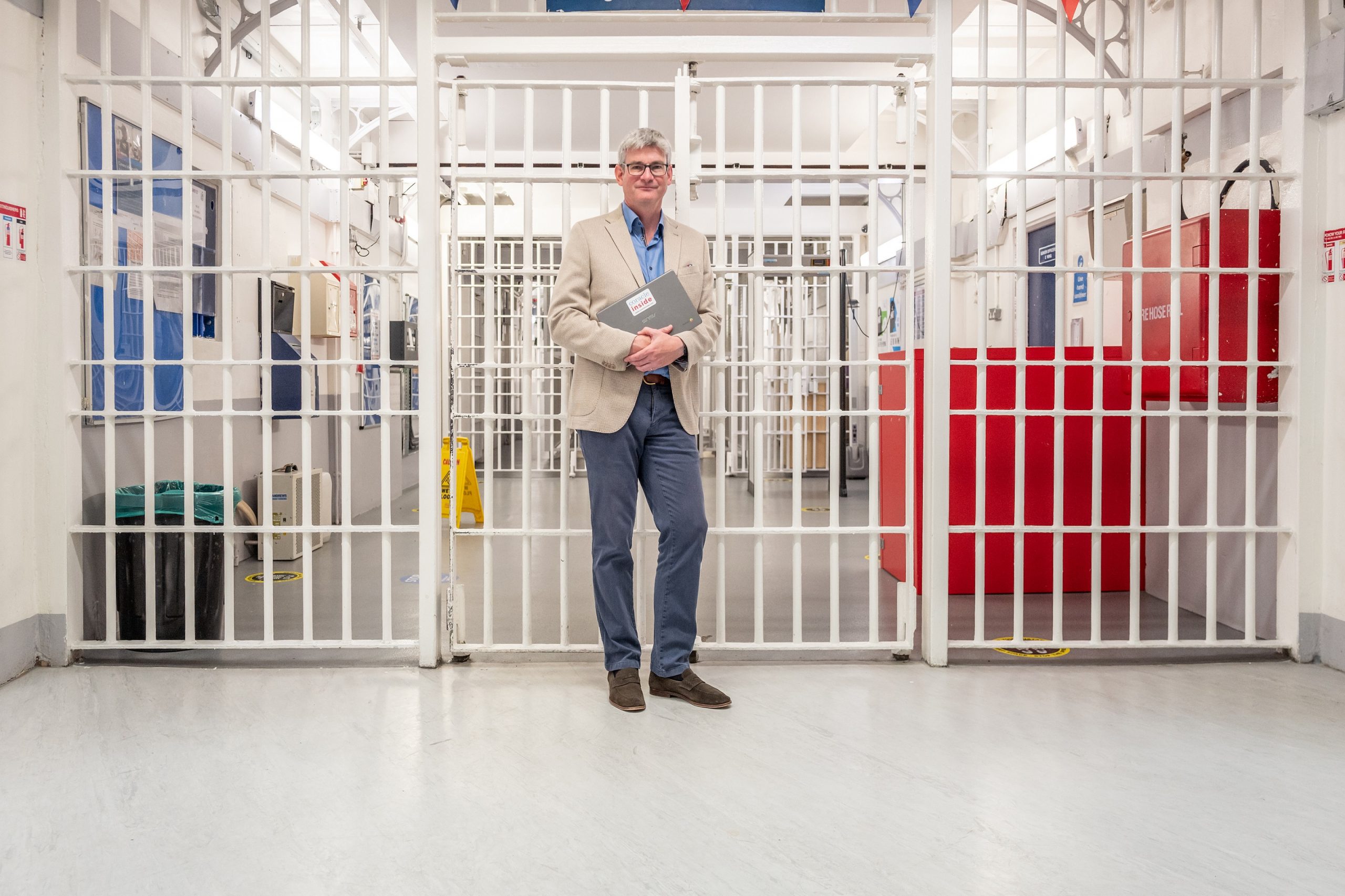An e-learning expert has called for prison education to be prioritised as a method to cutting reoffending, in time for Adult Learners’ Week.
Adult Learners’ Week will take place in Wales from 17th – 23rd October 2022, and will also be celebrated in over 55 countries worldwide. The event aims to promote the value of lifelong learning and make learning opportunities more accessible.
E-learning expert James Tweed says prisoners are often missed out when it comes to being provided with new learning opportunities.
Tweed, founder of Suffolk-based company Coracle, says that teaching prisoners digital skills is essential in preventing reoffending and ensuring that ex-offenders successfully reintegrate into society.
Coracle is one of the few companies in the country authorised by the Ministry of Justice and HM Prisons and Probation Service to provide inmates with computers.
“Digital learning and skills are key to reducing reoffending, as every part of our society is affected by digital. We must ensure that these people learn online and develop digital skills while they’re inside,” says Tweed.
“Our aim is to make digital learning a possibility for all prisoners in the country.
“Adult Learners Week is a great opportunity for us to talk about why everyone should have access to learning opportunities, regardless of circumstance and background.”
Coracle provides Chromebooks preloaded with educational content from education providers such as The Open University, the Prison Education Trust, Shannon Trust, Aim Awards and DWRM.
It currently provides prisoners with access to educational content to four institutions in Wales; Usk, Prescoed, Swansea and Cardiff. Coracle operates in 50 prisons across England and Wales.
“By providing prisoners with digital skills, we can make steps to combating illiteracy and isolation, at the same time as increasing their chances of finding employment on their release,” Tweed added.
A recent survey by Coracle found that the vast majority of people in Britain believe prisoners should be educated while they are detained and want them to find work after release.
The online poll of 2315 people from across the UK showed that 88.5 percent of respondents, or nearly nine out of ten people, believe that inmates should receive education during their time in prison.
The public were particularly supportive of prisoners gaining ‘work skills for employment’, with 42.8% backing the approach over other kinds of prisoner education listed in the survey.
The survey asked: “Should prisoners receive education?” Just 11.5 percent responded negatively, with all other respondents backing options for prisoners to learn and develop skills or gain qualifications.
Tweed said: “The British public want people to leave prison and find employment, but they also recognise that this can be very challenging.
“We should ensure every prisoner is prepared for life outside before they are released and, right now, that just isn’t the case.
“All released prisoners should be literate and numerate, have basic digital skills and a CV. Yet many leave prison missing some or all of these things.”
The survey found support for other forms of education, with many respondents also showing support for basic skills such as maths and literacy (20.3%), creative skills (9.1%), academic qualifications (8.4%) or digital skills (5.1%) as their top choice for prisoner education.
Crime is very costly and a report from the Ministry of Justice estimates the cost of reoffending to be £18bn per year. Tweed said the public are right to demand change which will benefit wider society.
“Taxpayers want better value for money from prisons. It currently costs over £48,000 per year to keep someone in prison. Yet prison education doesn’t have to be expensive and can be as little as £500 per year.
“Every time we stop a prisoner from re-offending, there’s a massive gain for the taxpayer and for society as a whole.
“The public still supports the idea of prison in principle and, in some cases, there’s little other option. However, they realise locking people up for 22 hours per day isn’t going to get the results they want.
“Many prisoners are very poorly educated, lack qualifications and have weak work histories. They leave prison and emerge into a world being rapidly changed by digital technology. We need to address this now or our problems will get worse.”
ABOUT CORACLE
James Tweed is the founder and managing director of digital learning company Coracle, which provides inmates at 50 prisons in England and Wales with access to education in their cells.
Coracle is on a mission to tackle the digital skills gap. Its tech platform means prisoners can safely access content from organisations such as The Open University, Prison Education Trust, Shannon Trust, Aim Awards and DWRM, without using the internet.
Coracle is one of the few companies permitted by the Ministry of Justice and HM Prisons and Probation Service to provide prisoners with laptops for education.



